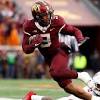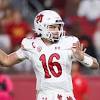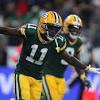How will U.S. United Methodists vote? UMNews.org

Key points:
- Mainline Protestant churches will likely have near-equal numbers of Democrats, Republicans and independents for the foreseeable future.
- For mainline Protestants such as United Methodists, factors other than denomination – such as race, age, geographic location – may be more predictive of how they vote.
- While there is no way to know how church members will vote, voting data for each county where United Methodist churches are located can offer insight.

The Rev. Lovett H. Weems Jr. Photo courtesy of Wesley Theological Seminary.
Commentaries
UM News publishes various commentaries about issues in the denomination. The opinion pieces reflect a variety of viewpoints and are the opinions of the writers, not the UM News staff.
Those who refer to their United Methodist congregation or the denomination itself in the United States as a “purple” church are probably right.
As Vanderbilt historian James Hudnut-Buemler put it, far from being the “American political left at prayer, the mainline Protestant churches will continue to be distinct for numbering near equal numbers of Republicans, Democrats and independents for years to come.”
Results in presidential elections over decades demonstrate the diversity of mainline church constituencies. For mainline Protestants such as United Methodists, factors other than denomination may be far more predictive of how they vote. Race, geographic location, age, education and economic status make a difference in their voting patterns.
Without reliable survey data, there is no way to know how United Methodists voted in the last presidential election. What we can do is identify the county in which each United Methodist church is located and see how the county voted. This tells us more about the impact of geographic location and its associated demographics than how individual United Methodists voted.
It also reveals how the impact of an increasingly concentrated population shapes elections. Over two-thirds of the population of the United States lives in less than 10 percent of the counties. As a result, those densely populated areas can shape elections. For example, in the 2020 election, President Biden won more votes and fewer counties than any president in any previous election.
Therefore, when looking at how the counties in which churches are located voted in 2020, their location in terms of densely populated counties and more sparsely populated counties will shape much of the findings. It is important also to note that it is not unusual for mainline churches as longstanding institutions in the nation to be located in more rural parts of the country. Many of these churches were established when the country was predominantly rural. Church locations tend to reflect the location of the population when the church was established.
So, with all these appropriate disclaimers, we examine the location of United Methodist churches in 2019 and how their counties voted in the 2020 presidential election. There were 30,541 U.S. United Methodist churches in 2019. (The counties in which these churches were located is available for all but 118 of them.) Of the 30,423 churches for which we have counties, we can report the presidential election winning party in 2020 for their counties. For comparison, the overall percentage of all counties won by each party is given.
All U.S. counties
Counties won by the Democratic Party 18% Counties won by the Republican Party 82%
How the counties voted based on the location of all United Methodist churches
UM churches located in counties won by the Democratic Party 27%UM churches located in counties won by the Republican Party 73%
Since the 2020 election, approximately 25 percent of United Methodist churches have disaffiliated from the denomination over issues of human sexuality through a process approved by a special session of the General Conference in 2019. Now we can see some variation in the proportionate location of the disaffiliating churches and how the counties in which they are located voted in 2020.
Staying churches – How the counties voted based on the location of churches staying
Churches located in counties won by the Democratic Party 31%Churches located in counties won by the Republican Party 69%
Disaffiliating churches – How the counties voted based on the location of churches disaffiliating
Churches located in counties won by the Democratic Party 12%Churches located in counties won by the Republican Party 88%
There is no way to know how United Methodists will vote in 2024. We can be confident that votes will be cast from a wide range of motivations and, in the end, will be thoroughly diverse. We will hope that the Wesleyan heritage of working for the common good of society will be part of that motivation.
And we will pray that amid a deeply divided nation, our congregations may model respect for diversities that need not divide our life together in Christ.
Weems is distinguished professor of church leadership and senior consultant of the Lewis Center for Church Leadership at Wesley Theological Seminary in Washington.
News media contact: Tim Tanton or Joey Butler at (615) 742-5470 or [email protected]. To read more United Methodist news, subscribe to the free UM News daily or weekly digests.


 United States
United States Argentina
Argentina  Australia
Australia  Austria
Austria  Brazil
Brazil  Canada
Canada  Chile
Chile  Czechia
Czechia  France
France  Germany
Germany  Greece
Greece  Italy
Italy  Mexico
Mexico  New Zealand
New Zealand  Nigeria
Nigeria  Norway
Norway  Poland
Poland  Portugal
Portugal  Sweden
Sweden  Switzerland
Switzerland  United Kingdom
United Kingdom 
























